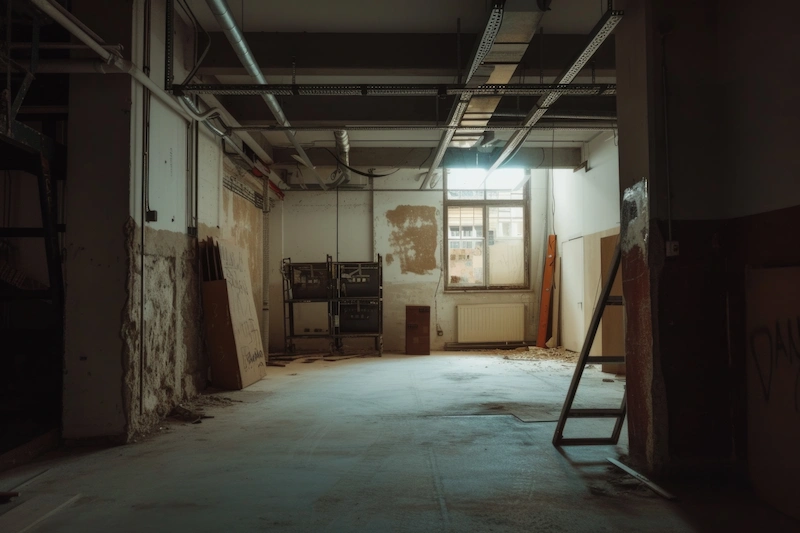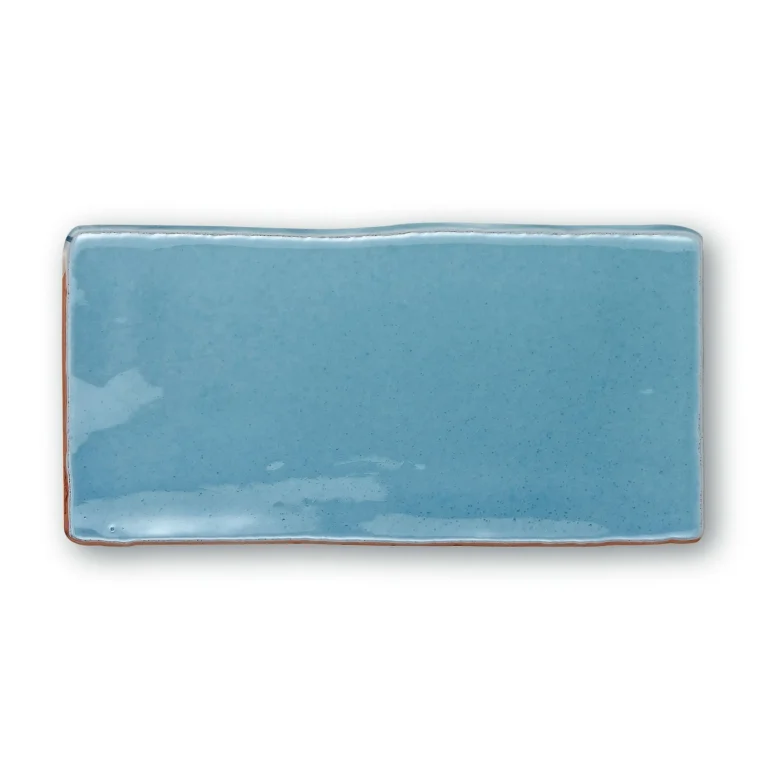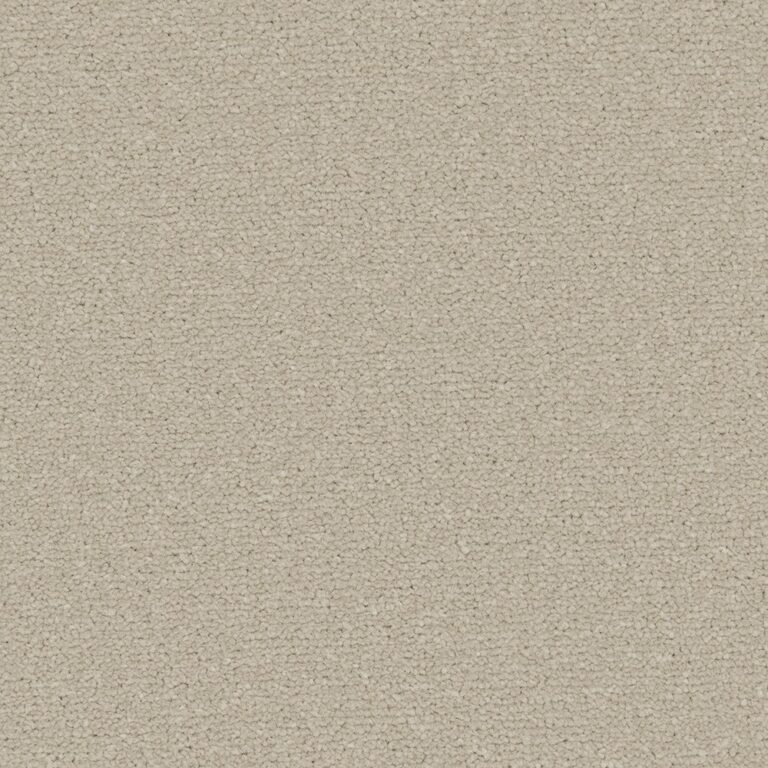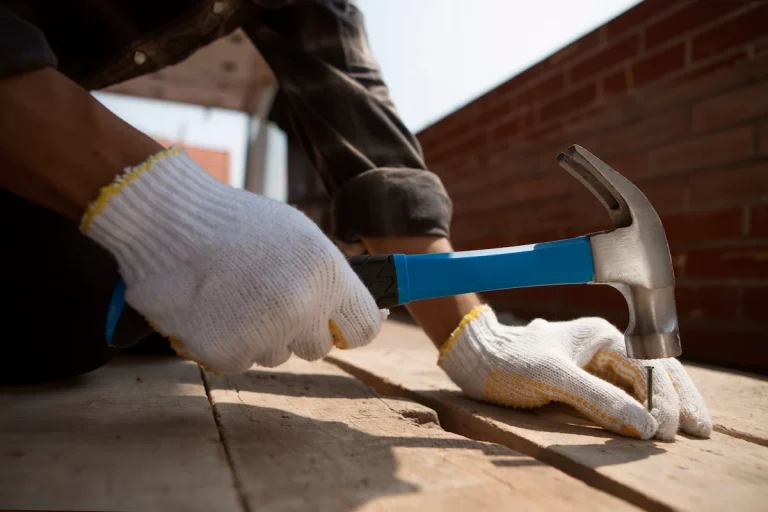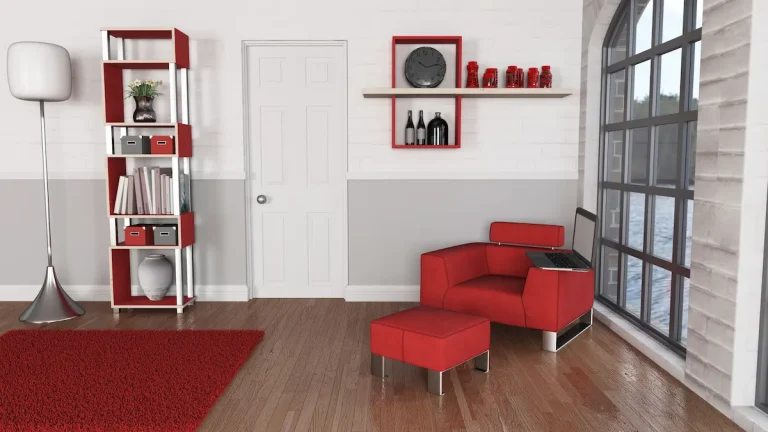Selecting the best flooring for a basement can be a challenging endeavor, particularly given the unique issues associated with this environment. Factors such as moisture management, comfort, and durability must be carefully considered in this decision-making process.
This guide aims to assist you in navigating the complexities of basement flooring selection, exploring various suitable options, and identifying the type that best aligns with your specific requirements. Prepare to enhance your basement into a comfortable and aesthetically pleasing space.
The Challenges Of Choosing The Best Flooring For Basements
Selecting appropriate flooring for basements involves distinct challenges due to the specific environmental conditions that impact both durability and comfort. A primary concern is moisture resistance, as basements frequently experience elevated moisture levels and potential water exposure, which can lead to water damage.
Furthermore, the necessity for effective drainage systems and basement drainage to manage indoor humidity and prevent mould growth complicates the selection of suitable flooring materials. Homeowners must also take into account foundation considerations, including temperature changes and DIY-friendly installation, ensuring that the chosen flooring type can endure temperature fluctuations while providing a comfortable atmosphere.
Consequently, the process of selecting basement flooring is a critical element of home improvement, with the help of renovation experts.
The Factors To Consider When Choosing The Best Flooring For Basements
When selecting flooring for basements, several critical factors must be taken into account to ensure a durable, comfortable, and aesthetically pleasing environment.
Primarily, moisture levels are of utmost importance, as basements are frequently subject to higher humidity and potential water exposure. Therefore, it is essential to choose flooring that provides excellent moisture resistance, vital for basement flooring.
Furthermore, proper subfloor preparation is crucial, as it directly impacts the overall durability and longevity of the selected flooring materials. Additionally, considerations regarding comfort and insulation are necessary to create a cosy atmosphere with the right flooring materials and decorating ideas.
Finally, budget-friendly options, such as luxury vinyl tile and waterproof laminate, should be evaluated in conjunction with the desired features and maintenance requirements of the flooring installation.
1. Moisture and Humidity Levels
Moisture and humidity levels are critical considerations in selecting appropriate basement flooring, as these factors can significantly affect the longevity and safety of the flooring materials. Elevated moisture levels can result in mould growth and structural damage, making it imperative to incorporate moisture barriers and select materials that possess inherent mould resistance.
It is essential for homeowners to understand how various flooring options respond to moisture in order to maintain a safe and stable environment. For instance, vinyl flooring is frequently recommended for areas susceptible to dampness due to its water-resistant properties, offering a durable and comfortable surface capable of withstanding high humidity levels.
Similarly, epoxy flooring is an excellent option, as its seamless application prevents moisture penetration. The implementation of a reliable moisture barrier, irrespective of the flooring type, is vital in preventing potential damage.
The following comparison outlines various flooring options:
- Vinyl: Exhibits excellent resistance to moisture and is ideal for basements.
- Epoxy: Demonstrates high durability and waterproof characteristics; its seamless finish protects against moisture.
- Carpet: Absorbs moisture, potentially increasing the risk of mould if not properly maintained.
- Hardwood: Susceptible to warping and damage when exposed to high humidity.
- Porcelain Tiles: Offer a robust and moisture-resistant option, suitable for high-traffic areas.
- Reclaimed Wood: Provides a rustic look but requires careful sealing to prevent water damage.
- Ceramic Tiles: Durable and easy to maintain, great for moisture-prone areas.
- Sealed Concrete: A cost-effective solution offering excellent durability and moisture resistance.
By considering these factors, individuals can make informed decisions and choose flooring materials that will enhance the resilience of their basement against moisture-related challenges.
2. Subflooring
The condition of the subflooring is crucial when selecting flooring for basements, as it serves as the foundation for the final flooring installation and directly impacts overall durability and comfort. Proper preparation of the subfloor can aid in managing moisture levels and facilitating effective drainage systems, both of which are essential for ensuring a long-lasting flooring solution.
Selecting the appropriate subflooring requires a comprehensive consideration of various factors that influence the effectiveness and durability of the final flooring choice. A well-prepared subfloor can enhance surface stability and prevent common issues such as warping or cracking.
- Moisture management is critical in basements, where high humidity levels can compromise lower-quality flooring materials.
- Implementing advanced drainage systems not only mitigates water-related concerns but also extends the lifespan of the flooring.
- Different flooring materials—such as tiles, vinyl, or engineered wood—offer unique benefits when paired with suitable subflooring conditions, promoting both aesthetic appeal and functionality.
In summary, understanding these elements enables homeowners to utilise easy maintenance and adhere to recommended maintenance routines to make informed decisions that will sustain both the beauty and usability of their basement spaces for years to come.
3. Durability
Durability is a crucial factor in selecting basement flooring, as the environment presents unique challenges that flooring must endure, including moisture, temperature fluctuations, and potential water exposure. Flooring options such as vinyl, laminate, and epoxy are recognised for their durability and resistance to wear and tear, making them particularly suitable for basement applications.
When considering the optimal choice for basement flooring, it is essential to evaluate the performance of various materials under adverse conditions. For example, vinyl flooring is acclaimed for its water resistance and low-maintenance requirements, effectively withstanding spills and high humidity. In contrast, laminate surfaces and interlocking vinyl provide a robust solution, offering excellent resilience against scratches and impacts, although they may not perform as well as vinyl in terms of moisture resistance.
Waterproof hardwood may be an attractive option for those desiring a more rustic aesthetic; however, it is imperative to ensure that the product is genuinely waterproof to avoid warping over time.
Maintenance Routines:
- Regularly clean and dry spills to prevent moisture accumulation.
- Utilise recommended cleaning products to preserve the shine and integrity of the surfaces.
- Monitor humidity levels in the basement to mitigate the risk of damage.
By carefully considering these factors and adhering to maintenance protocols, individuals can significantly extend the lifespan of their chosen flooring material.
4. Comfort and Insulation
Comfort and insulation, including insulation comfort and thermal insulation properties are essential factors in establishing a pleasant and liveable basement environment, significantly impacting the selection of flooring materials that foster a cosy atmosphere. Flooring options with thermal insulation properties can effectively regulate temperature fluctuations, ensuring a comfortable experience throughout the year.
When choosing materials for basement flooring, it is crucial to consider not only aesthetic appeal but also their performance in terms of insulation and comfort. For example, materials such as cork and carpet tiles provide an excellent thermal barrier, serving as a buffer against the coldness of concrete. These options can greatly enhance the warmth of the space, making it more inviting.
- Cork: This material is well-regarded for its natural insulation properties and soft feel underfoot.
- Carpet tiles: These offer warmth and sound absorption, making them ideal choices for playrooms or home cinemas.
- Luxury vinyl planks: These combine durability with comfort, mimicking the appearance of wood while providing superior insulation.
Incorporating these materials not only enhances thermal comfort but also contributes to a healthier indoor environment, reducing energy consumption and promoting overall well-being.
5. Cost
Cost is a critical factor when selecting basement flooring and flooring installation, as homeowners frequently seek budget-friendly options that do not compromise quality or durability. Various flooring types, including vinyl plank and laminate flooring, provide affordable solutions while maintaining essential features such as moisture resistance and ease of maintenance.
A diverse array of flooring materials is available, each with its distinct financial implications. Vinyl plank flooring, for instance, is often positioned at the lower end of the price spectrum while offering superior moisture resilience, making it a prudent long-term investment.
When evaluating installation and maintenance costs, it is essential to consider not only the initial expenditure but also future costs related to upkeep. Economical options in the short term may result in more frequent replacements, which can significantly impact overall budgets. Investing in high-quality materials typically leads to reduced maintenance requirements and enhanced durability, providing reassurance for homeowners. Additionally, understanding the flooring requirements and the coziness factor of various options can further aid in making the best decision.
Ultimately, comprehending how various basement flooring types correspond with different budgets enables homeowners to make informed decisions that improve their living spaces while ensuring financial stability. Consideration of interior design and basement drainage systems is also critical in determining the most suitable flooring option.
Best Flooring for Basements Options
Determining the most suitable type of flooring for basements involves consideration of several critical factors, including moisture resistance, durability, and comfort. Each flooring option, ranging from vinyl to engineered wood, presents distinct advantages that can address varying homeowners’ needs and preferences while facilitating ease of installation, maintenance, and ensuring proper basement drainage.
1. Vinyl Flooring
Vinyl flooring is frequently recognised as an optimal choice for basements due to its exceptional moisture resistance and ease of maintenance, rendering it suitable for areas prone to water exposure. Its versatility in design enables homeowners to select from a variety of styles without compromising on durability. Additionally, its DIY-friendly installation makes it a popular choice among homeowners.
For individuals aiming to convert their basements into functional living spaces, vinyl flooring represents an excellent option.
- Its moisture-resistant properties allow it to endure spills and high humidity levels commonly found in below-ground environments.
- This flooring solution demands minimal upkeep, making it significantly more manageable than traditional hardwood or carpet.
Homeowners have access to a diverse range of designs, whether they favour a sleek, modern aesthetic or a more rustic appeal. The extensive selection ensures that there is a style to enhance any décor seamlessly.
Moreover, advancements in vinyl printing technology have made it increasingly straightforward to achieve a realistic appearance that mimics wood or stone.

See product: Floorify Big Tiles Oyster
2. Tile Flooring
Tile flooring, especially porcelain tiles, represents an excellent choice for basements due to its remarkable durability and resistance to water damage. The aesthetic appeal and variety of design options associated with tile flooring make it an attractive solution capable of withstanding the unique challenges presented by basement environments. Moreover, it ensures better basement drainage and effectively protects the foundation.
Plus these advantages, tile flooring is recognised for its low maintenance requirements, making it an ideal option for busy households. Unlike traditional carpeting, tile does not trap allergens, odours, or moisture, thereby contributing to a healthier living environment.
Porcelain tiles are particularly esteemed for their toughness, often surpassing other materials in wear resistance, while also being available in a wide range of finishes and styles. Conversely, ceramic tiles offer vibrant colours and patterns, providing homeowners with ample opportunities to personalise their basement spaces.
Whether opting for an elegant finish or a more rustic appearance, the versatility of tile can enhance the aesthetic appeal of any basement area while ensuring practicality and longevity.
3. Laminate Flooring
Laminate flooring serves as an excellent option for budget-conscious homeowners who seek a balance between durability and aesthetic appeal, particularly in basement environments. Recent advancements in moisture resistance and ease of maintenance have rendered laminate flooring increasingly suitable for areas that are prone to humidity. Its DIY-friendly installation allows homeowners to save on labour costs while ensuring a high-quality finish.
Plus its cost-effectiveness, laminate flooring presents a wide range of design options that can effectively mimic the appearance of hardwood, tiles, or stone, thereby offering homeowners considerable flexibility in their basement decor.
- Recent innovations in laminate technology have also enhanced its performance against dampness and occasional spills, which are prevalent in basements, making it a prudent investment.
- The straightforward installation process allows homeowners to reduce labour costs, facilitating a more efficient transformation of this often-overlooked area.
While there may be potential drawbacks, such as the susceptibility to scratches or dents, the overall advantages of moisture-resistant laminate significantly outweigh these concerns, providing a resilient and stylish flooring solution tailored for challenging conditions. Proper basement drainage systems and regular maintenance further enhance its longevity.
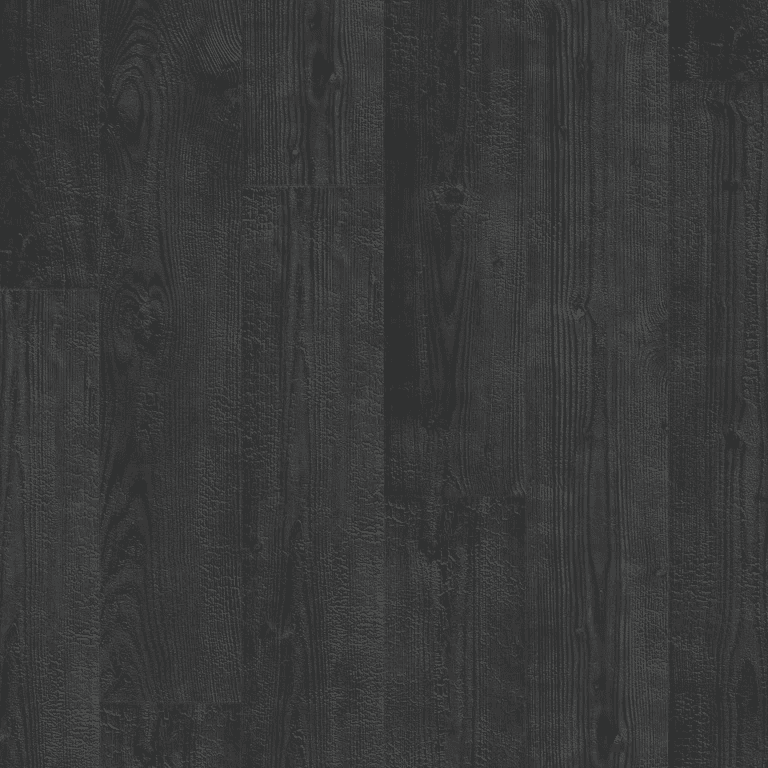
See product: Quick-Step Impressive Burned Planks
4. Carpet Flooring
Carpet flooring has the potential to significantly enhance the comfort and warmth of basements; however, careful consideration must be given to its moisture resistance.
Basements inherently present humidity challenges that can influence flooring choices. Thus, it is essential to understand the significance of selecting moisture-resistant options. Investing in specialised carpets designed to resist moisture not only ensures a more durable installation but also contributes to a healthier indoor environment. These carpets often feature advanced technologies such as moisture barriers or antimicrobial treatments, which promote longevity and inhibit the growth of mould and mildew, while also integrating efficient basement drainage solutions.
- Moisture-resistant carpets are specifically engineered to endure damp conditions.
- Regular maintenance practices, including vacuuming and steam cleaning, are critical for preserving both the aesthetic and functionality of the carpet.
- Consulting with industry professionals can provide valuable insights into the best practices for maintaining these flooring options in moisture-prone areas.
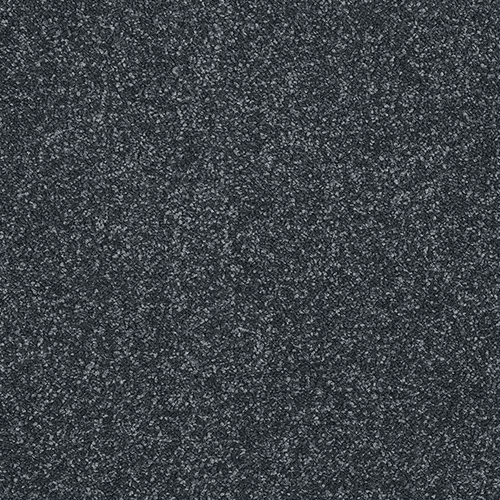
See product: Abingdon Caress Finesse Ebony
5. Engineered Wood Flooring
Engineered wood flooring represents an excellent option for homeowners seeking to blend the natural elegance of hardwood with improved moisture resistance, making it suitable for use in basements. Its durability, along with its thermal insulation properties, enhances the comfort of the space, contributing to its popularity among many consumers. Additionally, proper basement drainage and foundation protection make it a wise choice.
What distinguishes engineered wood flooring is its unique construction, which features a top layer of genuine hardwood adhered to layers of plywood or high-density fibreboard. This engineered design offers superior stability, particularly in environments where humidity and temperature fluctuations are common.
- Moisture Resistance: Engineered wood flooring effectively resists warping and swelling when exposed to moisture, rendering it ideal for damp areas such as basements.
- Aesthetic Appeal: Homeowners can appreciate the rich textures and colours characteristic of hardwood without sacrificing durability.
- Comfort: The thermal properties of the flooring help to maintain a warm and cosy atmosphere, thereby enhancing overall comfort.
By selecting engineered wood flooring, individuals can seamlessly combine style and practicality within their homes.
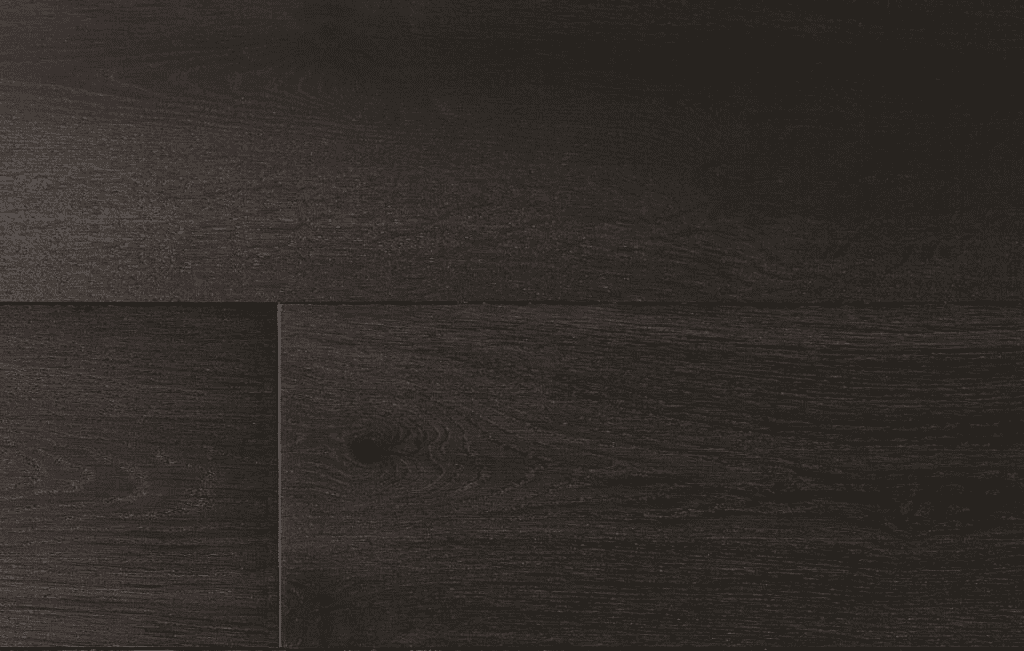
See product: Ted Todd Classic Tones Bedgebury – Plank (2.2m x 180mm)
For the best results, trust the experts at TEKA Flooring. We offer a wide selection of high-quality basement flooring options designed to meet your needs, whether you’re aiming for durability, style, or both. Plus, our professional fitting services ensure that your new flooring is installed to perfection, providing long-lasting performance and beauty.
Visit TEKA Flooring in Peterborough today to explore our basement flooring collection and start transforming your space with confidence!
Read also:


























